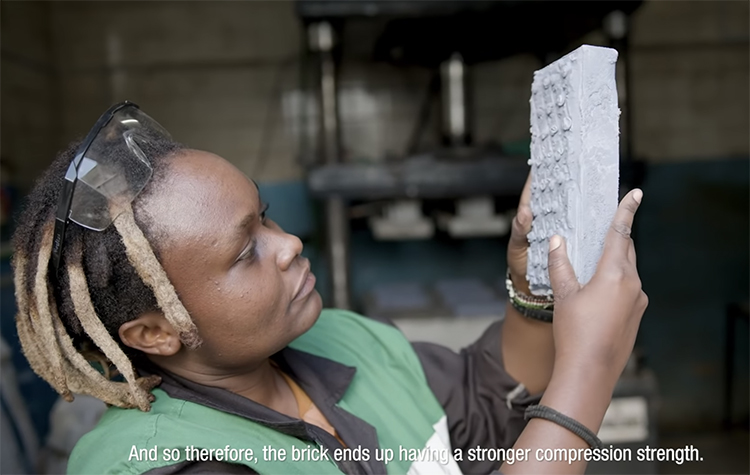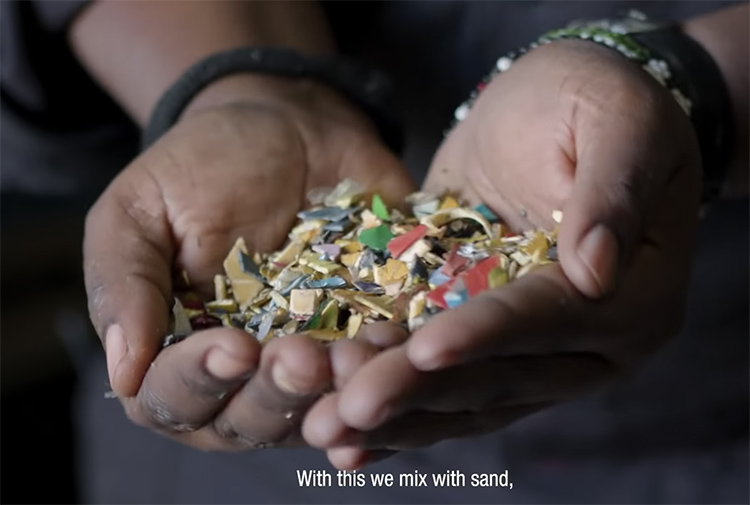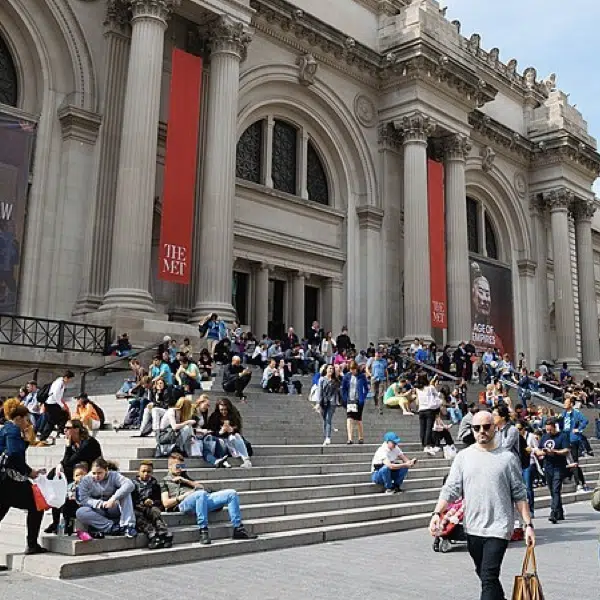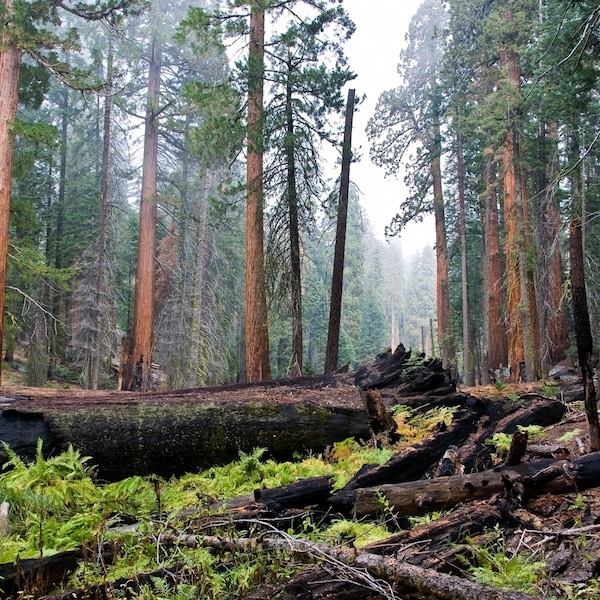
Nzambi Matee pictured at the Gjenge Makers factory with one of her recycled plastic bricks. (Photo: screenshot from UN Environment Programme video)
It's no secret that recycling plastic is good for the Earth. When not recycled, single-use plastics clog landfills and litter city streets. This is a problem across the world, and young Kenyan materials engineer Nzambi Matee grew increasingly frustrated at the waste accumulating in her hometown of Nairobi. She decided to invent her own innovative solution to help promote the circular use of plastics. She founded Gjenge Makers, a business which transforms plastics into sustainable, extremely durable construction materials using machines designed by Matee herself. Their colorful bricks are stronger than concrete and swiftly gaining global attention—including from the United Nations.
Frustrated with the slow municipal response to the problem of plastic waste, Matee told Reuters, “I was tired of being on the sidelines.” With her background in material sciences, the young entrepreneur designed a system which converts high density polyethylene, low density polyethylene, and polypropylene plastics into solid bricks. She founded Gjenge Makers in Nairobi to put this process into action. The company acquires plastics in need of upcycling from factories and recyclers. Matee explans, “There is that waste they cannot process anymore; they cannot recycle. That is what we get.”
Rather than reaching a landfill at the end of their usefulness, the plastics are shredded and combined with sand. Under high heat and compression, the new material is formed into colorful bricks of varying size and thickness. These bricks have tested at five to seven times the strength of concrete. They are ideal for building walls, paving driveways, and other construction needs. They're also affordable—they cost only $7.70 per square meter of laid brick. Since beginning production in 2017, the factory has processed 20 tons of plastic waste and production levels stand at 1,500 bricks per day.
The young engineer was recently recognized as one of seven 2020 winners of the Young Champions of the Earth sustainability honor from the United Nations. Winners of the award receive some seed funding, as well as the chance to get their ideas before the most powerful global decision makers. The champions are all under 30 years old and already leaders in the global fight for sustainability and a circular economy. Sustainability is not just an environmental concern for young innovators. The necessary changes can have huge economic impacts. Gjenge Makers' mission includes “creating job opportunities for youths and women” within the sustainability and construction industries in Kenya. The future looks bright for Matee and her company.
“Build Alternatively, Build Affordably,Build Sustainably”—that is Gjenge Makers' moto. To learn more about this youth-led company and their beautiful bricks, check out their website, and scroll down to watch the sustainability in action through a video from the United Nations.
Young Kenyan materials engineer Nzambi Matee decided to invent her own innovative solution to help promote the circular use of plastics.

Recycled plastic bits to be mixed with sand. (Photo: screenshot from UN Environment Programme video)
Her company Gjenge Makers transforms recycled plastics into sustainable bricks and building materials which are actually stronger than concrete.
View this post on Instagram
Matee was one of the seven winners of the UN Young Champions of the Earth sustainability honor for innovators under thirty.
View this post on Instagram
She hopes to promote a circular economy while also offering jobs to women and youth in Kenya.
Gjenge Makers: Website | Instagram | Twitter
h/t: [Good News Network]
Related Articles:
This 2-Acre Vertical Farm Is Managed by AI and Robots and Uses 99% Less Land
New Wind Turbine Smart Cameras Could Help Save Eagles and Other Birds
How LEED Certification and Other Systems Help Make Sustainable Architecture Possible
Listen To ‘Earthrise’: An Inspiring Poem About Climate Change by Amanda Gorman






















































































